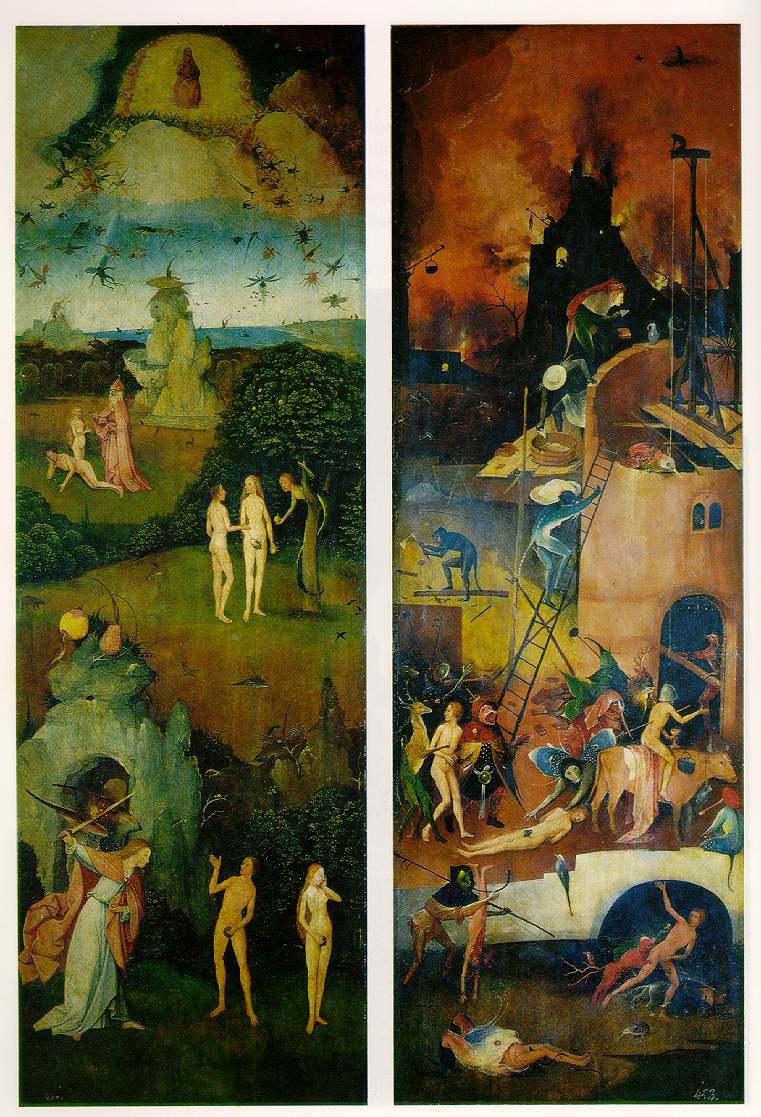Description
Artist Hieronymus Bosch's painting Paradise and Hell is a Flemish Renaissance masterpiece that has become an icon of European culture. The work, with an original size of 135 x 45 cm, is in the Museo del Prado in Madrid and is one of the jewels in its collection.
Bosch's artistic style is characterized by his boundless imagination and his ability to create surreal and fantastic images. In Paradise and Hell, the artist shows his ability to create complex and detailed scenes that capture the viewer's attention from the very first moment.
The composition of the painting is impressive, with a large number of characters, animals and objects that intertwine in a chaotic and fascinating dance. The paradise scene is at the top of the painting, while hell is at the bottom. The line between the two worlds is fuzzy and blurry, giving rise to a sense of unease and mystery.
Color is another important aspect of painting. Bosch uses a palette of vibrant, saturated colors that contrast with the darkness and despair of hell. The warm and bright tones of paradise mix with the cold and dark ones of hell, creating a tense and exciting atmosphere.
The history of the painting is also fascinating. It is believed to have been commissioned by a member of the Spanish nobility in the 16th century and to have been painted in the town of 's-Hertogenbosch, in the Netherlands. The work was acquired by King Philip II of Spain in the 16th century and remained in the royal collection until it was transferred to the Prado Museum in the 19th century.
Finally, there are little-known aspects of the painting that make it even more interesting. For example, it has been suggested that some of the characters in the work are portraits of real people, including Bosch himself. In addition, there are a series of hidden symbols and allegories in the painting that have been the subject of numerous studies and debates by experts. All in all, Paradise and Hell is a fascinating work of art that continues to capture the public imagination centuries after its creation.

